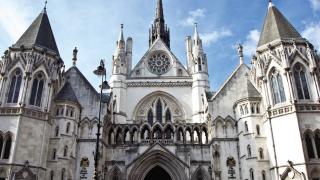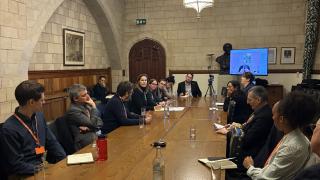
Today the High Court has dismissed a legal challenge contending that UK arms licences granted to Saudi Arabia were in breach of domestic law given the risk that the weapons would be used to violate international humanitarian law in Yemen.
The case, brought by the Campaign Against the Arms Trade, was rejected on the basis that it is for the Government, rather than the court, to assess whether the risk threshold is met for the likelihood of UK arms exports being used to commit violations of international law.
UNA-UK’s Chair, Lord Wood:
"Today's decision leaves us in a situation where the Government itself is the arbiter of the legality of its own policies. Where is the accountability? What message does this send about the Arms Trade Treaty which the UK was instrumental in bringing about?"Nonetheless, the case has highlighted major concerns about the use of UK arms in Yemen and has demonstrated the urgent need for a more cautious approach. The judgement states that the decision was “finely balanced” legally; but politically and morally it was wrong. We call on the UK to immediately review its arms exports to Saudi Arabia and address the concerns outlined in the judgement.
“The judgement makes it very clear that the British Government is deeply involved in supporting, training and supplying the Saudi government, noting that the UK provides “logistical and technical support" including "significant training”, and has “UK Liaison Officers located in the Saudi Arabian military HQ”. What isn’t clear is why. How are British interests furthered by helping this regime to kill civilians?
“The UK can only maintain its international standing if it is a champion of our global system of rules and norms. We can only do this if we lead by example. We cannot turn a blind eye when it suits us or skirt the rules when they are inconvenient.”
Yemen continues to be a humanitarian catastrophe, and the UK should be doing all it can to bring the violence and suffering to an end. We should be prioritising humanitarian relief – not weapons sales – to this conflict-ridden region.
Since Saudi Arabia intervened in Yemen in March 2015, the UK has licenced over £3 billion of weapons to the Saudi armed forces (including an eye-watering number of bombs), raising concerns about UK complicity in an aerial bombing campaign in Yemen described by an independent UN Panel of Experts as responsible for “widespread violations of international humanitarian law” and “devastating to Yemeni infrastructure and civilians”.
The UN has estimated that more than 10,000 civilians have been killed and over 40,000 injured in the conflict, with the majority attributable to the Saudi-led coalition.
Image: The Royal Courts of Justice, London






